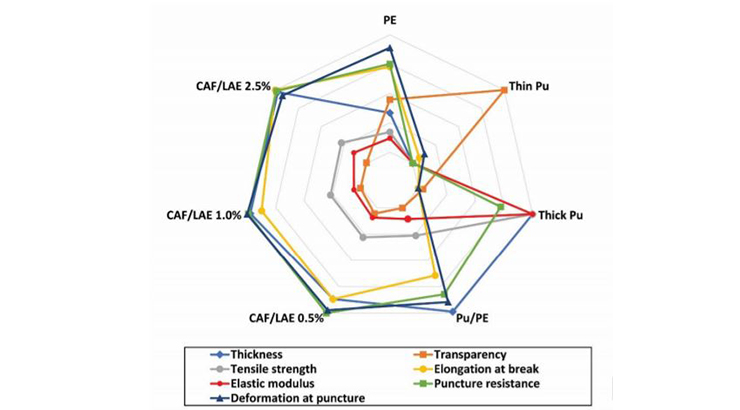Method for Producing Slow-Release Anti-microbial Food Packaging
ID# 2019-4978
Technology Summary
Replacing plastic food packaging using stand-alone biodegradable films represents a difficult task to achieve, given their failure to maintain functional and structural integrity over time. This is due in part to poor mechanical strength and dissolvability of such bio-based films when in contact with water. Consequently, edible films require polyethylene blends to achieve durability, resistance, sealability and stability while also being impermeable to water vapor and oxygen. PE suffers from bio-incompatibility and disposal issues that limit commercial appeal. Additionally, uncontrolled release of the antimicrobial agent results in selective pressures that may foster the development of resistance or a run off from the meat surface resulting in limited microbial suppression.
Application & Market Utility
A novel composite antimicrobial film (CAF) comprising a biopolymer and edible polyethylene, which also incorporates non-toxic, non-mutagenic and edible antimicrobial composition. The CAF has a controlled and sustained release that inhibits the reproduction of foodborne pathogens and allows for deeper penetration into the meat. Results demonstrate the CAF’s effectiveness in reducing microbial growth, promoting color-retention, and freshness of refrigerated fresh and further processed (ready-to-eat) beef and poultry meats over a span of twenty-eight (28) days.
Next Steps
Results demonstrated that the CAF at a specific concentration of the antimicrobial significantly reduced foodborne pathogens compared to the controls. Commercial applications are specific for food packaging for raw and ready-to-eat meats.

